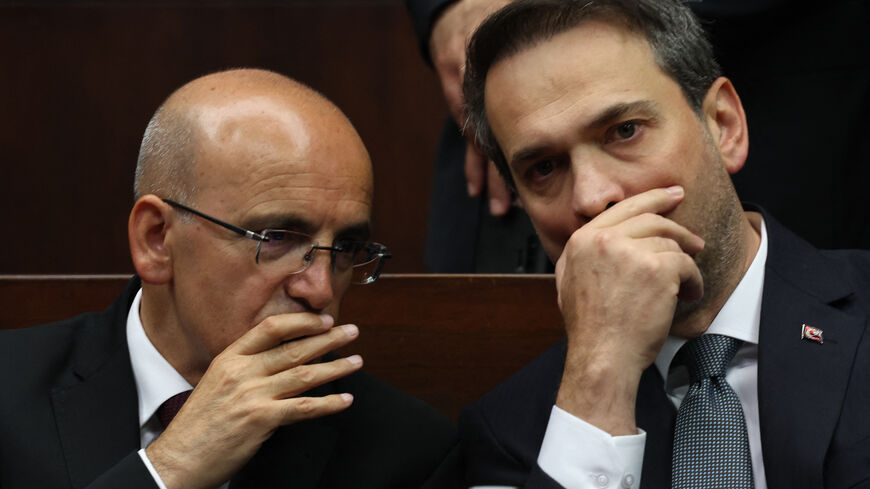ANKARA — Turkey’s Finance Minister Mehmet Simsek and Central Bank Governor Gaye Erkan are set to travel to Saudi Arabia this week, Turkey’s state-run Anadolu Agency reported Tuesday.
Anadolu said Simsek and Erkan will hold meetings with Saudi investors on Wednesday. On their first trip together, the two are also expected to meet with Saudi officials. Erkan was tapped as the country’s first female central bank governor last month as part of a major economic overhaul in Turkey.
The visit comes as the country’s new economy management is scrambling to attract foreign funds in a bid to ease the country’s foreign currency crunch and raise the central bank’s depleted reserves.
Simsek pledged on Tuesday that their efforts to draw foreign funds will continue, adding that the central bank’s reserves have risen to $14.2 billion after falling below zero ahead of the country's May general elections.
“Our rational policies aiming to contribute to the rise of the Central Bank's reserves and our efforts to provide additional foreign funds continue unabated,” he wrote on Twitter.
The visit will be the third leg of Simsek’s Gulf tour. Following their visit to the United Arab Emirates (UAE) earlier this month, Simsek and Turkey’s Vice President Cevdet Yilmaz traveled to Qatar on Sunday and met with Qatari leader Sheikh Tamim bin Hamad al-Thani and other officials. Yilmaz said the two sides discussed bilateral ties and ways to deepen economic cooperation between the two countries during the meetings.
“We aim to deepen our cooperation, especially in the defense industry and energy fields,” Yilmaz added.
Following the ongoing NATO summit in the Lithuanian capital Vilnius, Erdogan is also expected to embark on a Gulf tour that will start in the UAE.
Citing unnamed Turkish officials, Bloomberg reported last week that the Turkish government was aiming to attract some $25 billion in investments from Gulf countries through various channels.
Gulf funds played a key part in Erdogan’s efforts to keep his country’s economy afloat ahead of the elections as his unconventional economic policy — underpinned by an unorthodox view of higher interest rates causing higher inflation — sent inflation skyrocketing and sunk the Turkish lira to record lows. In a bid to keep foreign exchange prices in check, Turkey’s central bank burned through its forex reserves through back-channel means.
As part of the Turkish government’s return to conventional economic policy via Simsek and Erkan’s appointments, the bank hiked interest rates by 6.5 percentage points.








